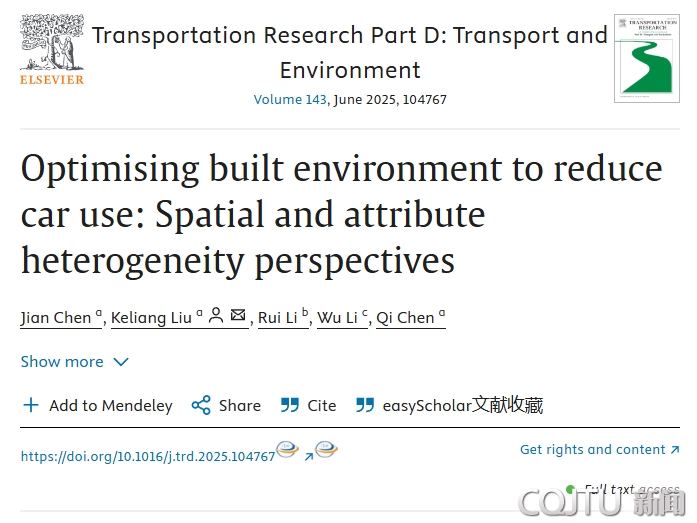In April 2025, Professor Chen Jian and Ph.D. candidate Liu Keliang from the School of Traffic and Transportation, Chongqing Jiaotong University, published a research paper titled “Optimising built environment to reduce car use: Spatial and attribute heterogeneity perspectives” in the internationally authoritative journal Transportation Research Part D: Transport and Environment (CAS Q1 Top Journal with an Impact Factor of 7.3).

Within the framework of urban development initiatives aligned with community livability enhancement and China’s “dual carbon” strategic goals, this study employs Baoding City, Hebei Province, as an empirical case to investigate the causal mechanisms through which neighborhood-scale built environment configurations influence vehicle kilometers traveled (VKT). To address the ineffective built environment optimization measures overlooked by former studies, this study utilized a multi-scale geographically weighted regression model (MGWR) that considered the spatial scale heterogeneity of variables. Additionally, a multi-scale attribute weighted regression model (MAWR) was developed based on the MGWR model, emphasizing group heterogeneity.

This research represents a significant scholarly contribution from Professor Chen Jian’s research team within the domains of behavioral geography and spatial planning on the basis of a general program grant from the National Natural Science Foundation of China, a post-project sustainability initiative administered by the National Social Science Foundation of China, and an industry-academic collaboration initiative conducted in Baoding City, Hebei Province. The team’s forthcoming investigations aim to operationalize these analytical paradigms through mixed-methods approaches, thereby generating granular behavioral insights to inform the development of context-sensitive policy frameworks for sustainable urban transition.






 waiban@vip.163.com
waiban@vip.163.com